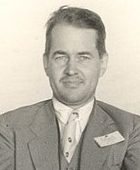Rationale for Inclusion
- Pioneer in Aviation Regulation and Policy: Dr. Edward Warner was a key figure in shaping international aviation regulation and policy. His work as one of the primary architects of the International Civil Aviation Organization (ICAO) set the foundation for the modern international air travel system. Warner played a crucial role in drafting the Convention on International Civil Aviation (also known as the Chicago Convention) in 1944, which established ICAO and created the framework for international aviation standards, air traffic control, and safety regulations.
- First President of the ICAO Council: Warner was the first president of the ICAO Council, serving from 1947 to 1957. His leadership was instrumental in guiding ICAO during its formative years, helping to develop standards for air safety, navigation, and air traffic control. Under his stewardship, ICAO became the primary body responsible for coordinating international aviation standards, ensuring that the rapidly expanding global aviation industry could operate safely and efficiently.
- Contributions to Aviation Safety: Throughout his career, Dr. Warner was a strong advocate for aviation safety. His work at ICAO helped establish international safety standards that are still in use today. Warner recognized that aviation safety was a global concern and that consistent international regulations were necessary to ensure the safe and efficient operation of airlines and air traffic.
- Service as a Civil Aeronautics Authority (CAA) Leader: Before his work with ICAO, Warner played a significant role in U.S. aviation as one of the early leaders of the Civil Aeronautics Authority (CAA), the predecessor of the Federal Aviation Administration (FAA). Warner served as a key advisor on aviation policy and helped guide the development of U.S. air traffic control systems and safety regulations.
- Distinguished Academic and Educator: Warner was a distinguished academic and educator. He was one of the first faculty members of the Massachusetts Institute of Technology (MIT) to specialize in aeronautics, helping to establish MIT as one of the leading institutions in the field of aviation.
- Enduring Legacy in Aviation Governance: Dr. Edward Warner’s legacy endures through his profound influence on the governance of international aviation. His work at ICAO helped shape the global aviation system, ensuring that air travel could grow in a safe and regulated manner. The international standards he helped develop continue to guide the aviation industry today, and his contributions to aviation safety, air traffic control, and international cooperation have had a lasting impact. Warner’s leadership and vision have made him one of the most important figures in the history of global aviation governance.

Biography
- Early Life and Education: Dr. Edward Pearson Warner was born on November 9, 1894, in Pittsburgh, Pennsylvania and grew up in Boston, Massachusetts. He attended Harvard University, where he earned a bachelor’s degree in mechanical engineering in 1916, and later received a master’s degree in aeronautical engineering from Massachusetts Institute of Technology (MIT).
- Personal Life: Edward Warner was known for his thoughtful, methodical approach to both his personal and professional life. He married and had children, balancing his family life with a distinguished career that often took him into the international spotlight. Warner was a private man, deeply committed to his work and the advancement of global aviation.
- Early Career: Edward Warner’s early career began in the 1920s when he was appointed as a professor of aeronautics at MIT, making him one of the first faculty members in the United States to focus on aeronautical engineering. Warner’s expertise led to his appointment as an assistant secretary of the U.S. Navy for aeronautics during World War I, where he played a key role in advancing military aviation capabilities.
- In recognition of his service to aviation Warner received numerous awards and accolades, including:
- Receipt of the Wright Brothers Medal (1932)
- Receipt of the Daniel Guggenheim Medal (1939)
- Receipt of the Wright Brothers Memorial Trophy (1956)
